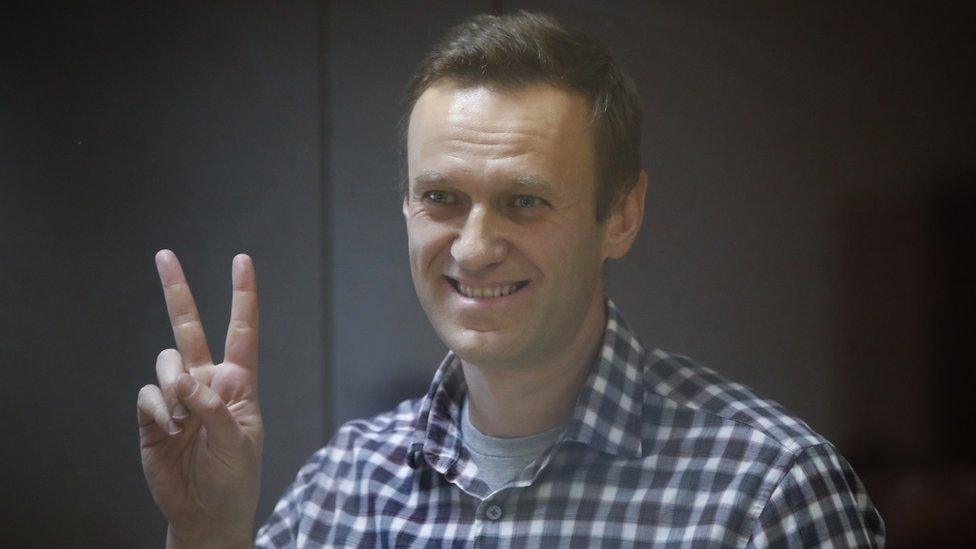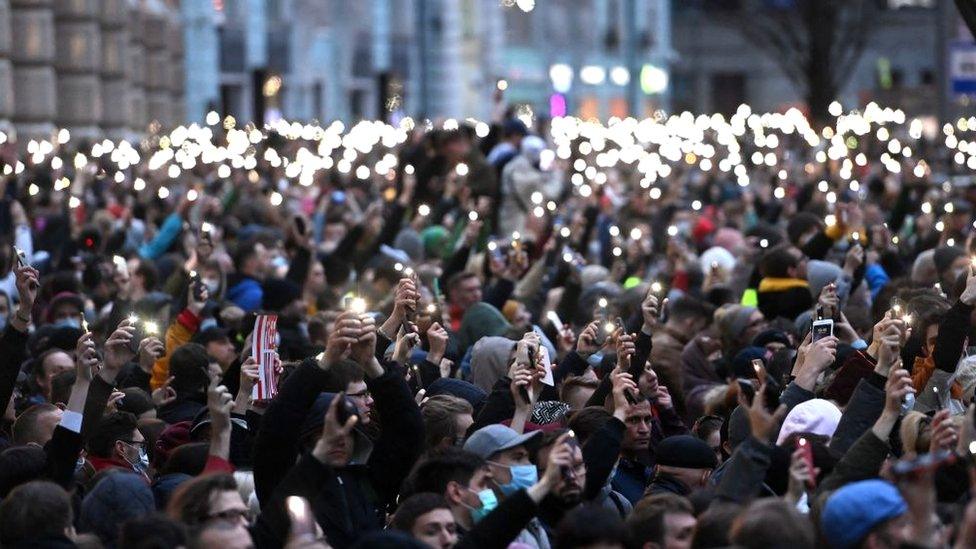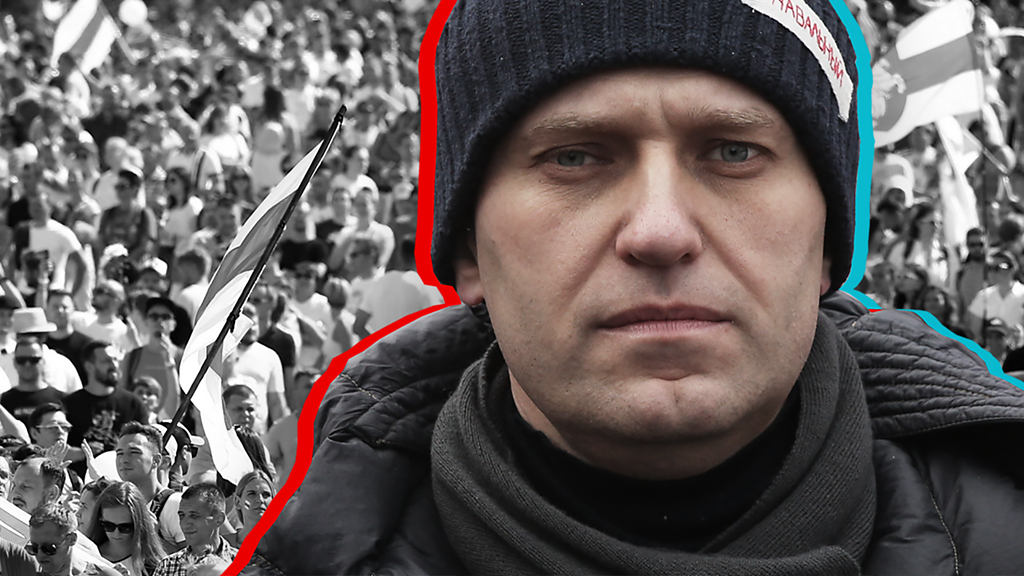Putin opponent Navalny ends hunger strike in Russian jail
- Published

Navalny was detained in January and later given a jail term of over two and a half years
Russia's main opposition figure Alexei Navalny has announced he is ending his hunger strike after 24 days of refusing food in jail.
Hours earlier his private doctors had appealed to him to take food to preserve his life and health.
Navalny began refusing food on 31 March to demand better medical care.
He said he had twice been seen by civilian doctors and "given the progress and circumstances, I am ending my hunger strike".
The process would be gradual, external, he added in an Instagram post.
His doctors had warned at the weekend he could die "at any minute". Late on Thursday they warned him that "further starvation" could significantly harm him and lead to his death.
President Vladimir Putin's foremost critic, he was detained as soon as he returned to Russia in January, after receiving treatment in Berlin for a nerve-gas attack in Siberia that left him in coma and fighting for his life. Russian authorities denied being behind the attack, but last December Navalny tricked an FSB agent into revealing that a Novichok agent had been placed in his underpants.
Navalny was sent to a penal colony in February for over two and a half years, after a court ruled he had broken the terms of a suspended jail term, even though he had been in a coma. Russia rejected a ruling from the European Court of Human Rights that he should be freed because his life was at risk.
Thousands of Navalny supporters took to the streets of Russian cities on Wednesday and more than 1,700 were arrested.

The largest rally was in Moscow on Wednesday where thousands defied police warnings
Navalny has complained of numbness and back pain and said he had not been given proper treatment by prison doctors.
In his message from the penal colony in Vladimir, east of Moscow, Navalny said he was still determined to be seen by a doctor of his choice. "I am losing feeling in areas of my arms and legs, and I want to understand what it is and how to treat it," he said.
Alexei Navalny: what you need to know
Related topics
- Published3 February 2021
